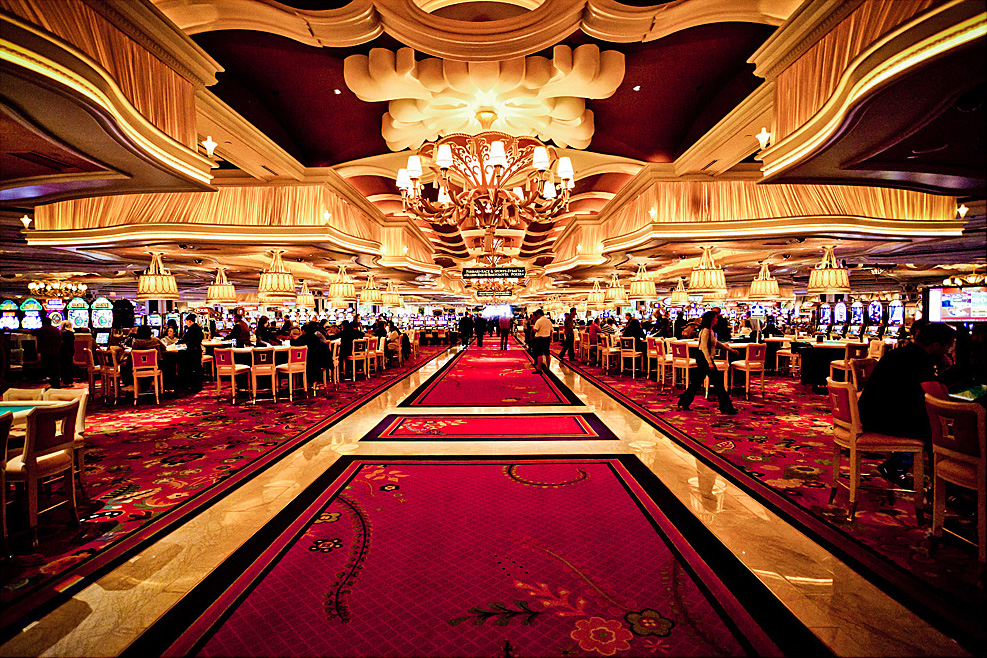
Casino experiences have long captured the imagination of humans around the planet, becoming an essential part of both fun and culture. From the glimmering lights of Las Vegas to the captivating experience of online gaming, these experiences evoke thrill, risk, and sometimes even a sense of sentimentality. They are beyond just hobbies; they have woven themselves into the texture of human experience, influencing everything from movies and music to style and books.
The charm of casino games goes beyond the gambling aspect, tapping into wider themes of fortune, possibility, and human behavior. As players convene around a card table or rotate the roulette, they engage in an timeless ritual that echoes with our collective desire for thrill and uncertainty. This obsession has led to the rise of countless references in films, music, and video games, showcasing how strongly entrenched these activities are in mainstream culture. Whether it is the intense drama of a legendary caper or the vibrant nightlife portrayed in recordings, casino games have established a substantial niche that reflects our bond with risk.
Social Significance of Casino Games
Gambling activities have played a crucial role in cultural aspects throughout the ages. Originating from old civilizations, forms of chance were often linked to ceremonies or events. For example, early forms of these activities can be traced back to ancient Chinese and the Roman Empire, where dice games and betting on results were common pastimes. These activities not only functioned as entertainment but also as methods of social interaction, facilitating relationships among individuals within societies.
As societies evolved, so did the sophistication and structure of casino games. The creation of formal casinos in the 17th century, particularly in the Italian region, marked a major shift in how games were perceived and structured. With specific spaces for gambling, the casino became a social hub where patrons from various backgrounds convened. This evolution contributed to the validation of gambling, transforming it from a mere pastime into an organized industry that influenced economy and regulations.
The effect of gambling activities on mainstream culture cannot be overlooked. As they were brought into the limelight in literature and movies, games such as Texas Hold’em and 21 became icons of risk, luck, and strategy. Famous figures and narratives have developed around these activities, illustrating societal views towards fortune, prosperity, and vice. This interest with casino activities has permeated various forms of entertainment, solidifying their place in the collective consciousness and connecting them to broader cultural narratives throughout the ages.
Depiction of Gambling Activities in Media
Gambling games have long been a popular theme in different types of entertainment, reflecting both the excitement and intricacies of gambling culture. Films such as Ocean’s Eleven and Casino Royale portray individuals who navigate dangerous scenarios, showcasing not only the attractiveness of the casino atmosphere but also the methods and decisions that come with playing popular games like Texas Hold’em and blackjack. These films often dramatize the exhilaration of winning and the potential repercussions of losing, encapsulating the perils involved in gambling.
TV programs have also explored the universe of gambling activities, often integrating them into the storyline as a backdrop for character arcs and conflict. Shows like Vegas depict the experiences of casino workers and customers, highlighting the dynamic, often disorderly energy of the casino floor. bakar69 slot Reality shows featuring high-stakes gambling competitions further emphasize the attraction of gambling activities, drawing viewers into the excitement and planning involved in each session. Through these depictions, media not only entertains but also stimulates conversations about luck, expertise, and the character of chance.
Video games have increasingly incorporated casino games into their structure, allowing players to recreate the experience of betting without financial exposure. Games within the realm of digital gaming often include virtual slots, poker, and other popular casino games, creating an interactive experience that mirrors traditional gambling. These virtual portrayals make casino games accessible to a global audience, appealing to both risk-takers and those who enjoy the thrill of virtual experiences. As a consequence, the representation of casino games in media continues to shape cultural attitudes and cultural relevance, highlighting their function in entertainment and social context.
Effect of Gambling Activities on Communities
Casino games have a meaningful effect on society, affecting various facets of culture and interpersonal behavior. They often function as a venue for community engagement, where people come together to enjoy a shared experience. Game nights with friends or trips to casinos become group events that build connections and create memories. This communal aspect enhances the entertainment value of gambling activities, making them a popular choice for festivities and leisure activities.
Moreover, casino games have been depicted in countless films, TV series, and literature, influencing perceptions and attitudes towards gaming and gaming. Icons like James Bond playing baccarat or the intense poker scenes in films have embedded these games in the shared imagination. This representation often glamorizes the lifestyle associated with gambling, attracting new players and impacting trends in both style and behavior. These representations can ignite curiosity and lead to a deeper exploration of the nuances of gaming.
However, there are also negative consequences associated with the widespread appeal of casino games. The allure of quick monetary gain can lead to problem gambling and economic troubles for some individuals. The community must grapple with these consequences, promoting responsible gambling and awareness of the dangers involved. Balancing the fun aspect of casino games with the risks is crucial to ensure that they remain a beneficial aspect of our societal fabric.